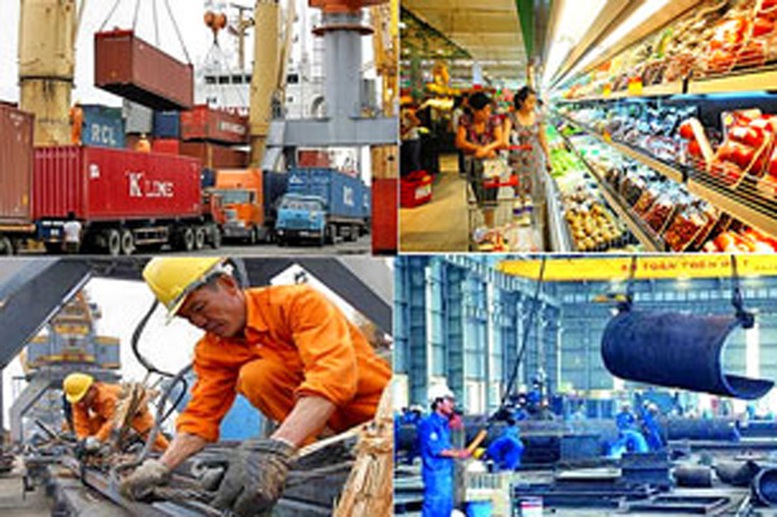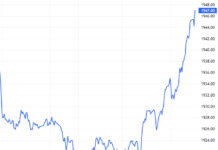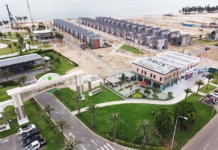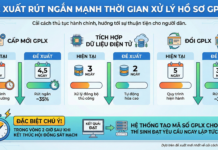
Vietnam’s economic growth forecast for 2024 stands at over 6%, as recently projected by both the World Bank and UOB Bank. This consensus on the country’s economic potential further bolsters confidence in Vietnam’s ability to successfully meet its economic goals for the year.
However, maintaining this growth trajectory in the coming years remains a challenging task, requiring better utilization of existing drivers and the exploration of new ones.
During recent government meetings, Prime Minister Pham Minh Chinh has repeatedly emphasized prioritizing high economic growth while keeping inflation in check, maintaining macroeconomic stability, ensuring the economy’s major balances, and focusing on revitalizing traditional growth drivers, including investment, exports, and consumption. He has also directed attention toward fostering new growth drivers.
For many years, demand-side policies have been a key focus, and their contribution to Vietnam’s economic achievements compared to its regional and global peers cannot be understated.
Stimulating aggregate demand through increased public investment in infrastructure development for the economy’s new phase of growth, while also prioritizing the export sector to leverage Vietnam’s free trade agreements, can be considered a win-win strategy.
Nevertheless, public resources are always limited. Similarly, prioritizing exports, which are currently dominated by foreign-invested enterprises, may create challenges for the development of domestic private enterprises. Many experts believe that it is time for the economy to shift towards more supply-side policies, alongside appropriate demand-stimulating measures.
Directive No. 29/CT-TTg, issued on August 27, 2024, on stimulating domestic consumption, supporting production and business activities, and developing the domestic market, offers a solution to this dilemma. Firstly, it encourages aggregate demand while also aiming to support the supply side.
Regarding public investment, the Directive calls for the early operation of infrastructure projects and those that create new production capacities. It also raises the issue of considering incentive policies for investment projects that utilize domestically produced raw materials and goods.
To boost domestic consumption, Directive No. 29/CT-TTg suggests encouraging investment in domestic production sectors with strengths and market demand. It also recommends that e-commerce platforms operating in Vietnam prioritize the consumption of domestically produced goods.
The Ministry of Industry and Trade is tasked with implementing measures to link production and commodity distribution, strengthen linkages within the commodity value chain, and form purely Vietnamese commodity chains.
To achieve self-reliance in the supply chain for domestic production, the Directive emphasizes attracting investment in projects that produce goods to substitute imports, increase production capacity, create more jobs, and gradually reduce dependence on foreign raw materials and basic commodities.

Dr. Bui Trinh, Institute of Management and Technology, FSB, FPT University – Photo: TTO
Additionally, the newly issued Directive reflects perspectives on boosting the supply side by enhancing the capabilities and resilience of enterprises.
For instance, it calls for a review and the implementation of support policies for domestic enterprises to participate in the supply chains of supporting industry products of foreign-invested enterprises. It also emphasizes connecting domestic enterprises with the supply chains of foreign-invested enterprises and global corporations, as well as addressing challenges related to land access to attract and expand investment in production and business activities.
Discussing this issue, Dr. Bui Trinh from the Institute of Management and Technology, FSB, FPT University, noted that while stimulating final demand has a certain impact on GDP growth, maximizing this effect requires targeted demand stimulation policies. To support the supply side, there should be a focus on reducing actual costs for enterprises and providing support for domestic enterprises in research and development.
“The policies should be transparent, equitable, and sustainable,” Dr. Trinh emphasized. “Industries with high multipliers for value addition and income should be encouraged to develop.”
Dr. Nguyen Quoc Viet, Deputy Director of the Institute for Economic and Policy Research (VEPR), expressed his agreement with the Directive’s references to e-commerce.
According to Dr. Viet, for Vietnamese goods to be featured on e-commerce platforms and compete with similar imported products, as well as gain a foothold in cross-border e-commerce, the domestic production market needs to take the lead.
“We need sustainable, stable, fair, and transparent mechanisms and policies to encourage the production of Vietnamese goods with strengths on an industrial scale, so that they can achieve a certain level of price competitiveness compared to imported goods,” he added.

Dr. Nguyen Quoc Viet, Deputy Director of the Institute for Economic and Policy Research (VEPR)
Furthermore, Dr. Viet suggested measures to minimize the significant cost disparity between goods produced by domestic enterprises and those imported informally from abroad.
On the one hand, there is a need to bring the production costs of prioritized goods with strengths to a reasonable level through tax cuts, reductions in social costs and specialized inspection fees, and support for businesses to access credit and land resources. On the other hand, tighter control over imported goods is necessary to ensure compliance with tax and other legal obligations.
The Surprising Lending Speed of Ho Chi Minh City Banks
“Hanoi’s bank credit growth has yet to reach its expected breakthrough as businesses continue to face challenges. Despite this, there remains an air of cautious optimism within the city’s financial sector. With a resilient economy and a dynamic business landscape, the potential for a surge in credit growth is ever-present, and banks are poised to play a pivotal role in facilitating this anticipated upswing.”
Unlocking Investment Potential: Deputy Prime Minister Demands Clear Timeline for Public Investment Capital Disbursement
Deputy Prime Minister Tran Hong Ha has instructed ministries, sectors, and localities to report on the review and classification of public investment projects. This includes ongoing projects with clear progress commitments and projects that cannot be implemented due to mechanism, policy, and legal obstacles.
Prime Minister: Exploring Dedicated Consumer Credit and Banking Services
Let me know if you would like me to tweak it or provide any additional variations.
“The Prime Minister has requested that the State Bank of Vietnam directs credit institutions to develop dedicated consumer credit and banking services. This includes strengthening lending for personal and consumer purposes, thus enhancing the overall consumer experience and financial accessibility.”
Unlocking Public Investment Law: Overcoming the Challenge of ‘Having Money but Unable to Spend’
For the proposal to build the Public Investment Law (amended), Prime Minister Pham Minh Chinh emphasized the need to remove obstacles and red tape, preventing situations where “there is money but it cannot be spent”, and avoiding prolonged projects. He stressed the importance of decisively cutting unnecessary and cumbersome procedures.













































